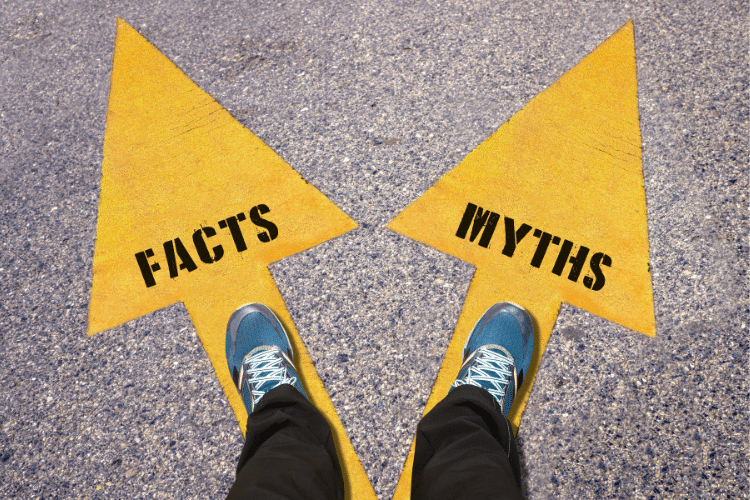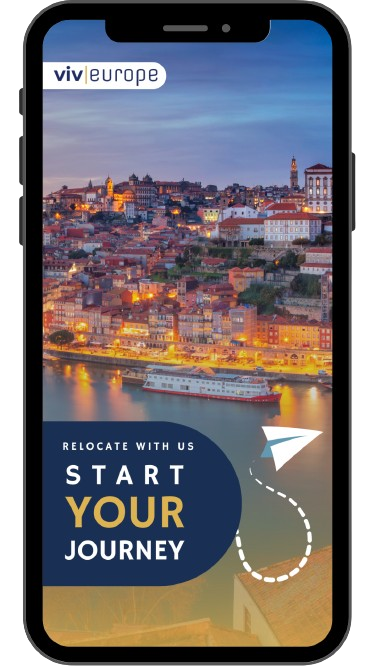Last Updated on September 3, 2024 by Maryam Siddiqui
As an intercultural psychologist, expat coach, and expat myself, I want to dispel 3 popular cultural adjustment myths about moving abroad and adjusting to a new culture. Moving beyond these myths will help you be truly successful in your new life. Keep reading to find out what they are!

What are Cultural Adjustment Myths?
Having some beliefs is easy when you don’t know any better. You’re only human. It’s only normal to think a certain way until you come across a different way of thinking. So what happens in the case you’re relocating?
Sometimes expats can end up believing cultural adjustment myths as a result of misinformation and misunderstandings. But we’re here to streamline your relocation as much as possible. Let’s get you ready to move and live your dream life!
Myth #1 – I’ve traveled or moved abroad before. This will be easy-breezy.
The truth is that you really haven’t made this move before because you aren’t the same person. We are constantly changing every day. Even if we never physically move, we will still change because we all get older.
And since your previous experiences, most likely, your financial or marital situation has changed. Maybe you were single then but now are married now, or vice-versa. Maybe you had young kids the last time you moved, and now you’re an empty nester.
You always want to be learning from our experiences, not only from our mistakes but also from your accomplishments. By examining your past actions, you can better understand your current priorities, needs, and wants.
Ask yourself:
- What went well last time I went abroad that I would like to do again?
- What do I want to do differently this time?
Take everything into account, your past experiences, your requirements now, and what you might need in the future. Remember, be realistic.
If you were a student back then, what does this move look like now that you are a parent or have a corporate job? If you’re not going to be working, how will your needs be different?
Learn from your past, but don’t be closed off by it. Being prejudiced or biased with expectations of how this move is going to go won’t help you successfully adjust. The key to your success is balancing experience with willingness.
- Check out our article How To Take My Business To Portugal: An Entrepreneur’s Guide.
Myth #2: With this move abroad, I’m leaving everything behind.
I’m going to have a clean slate in a new country. I’m leaving everyone, and everything behind that has caused me pain.
People may not really even realize that this is their mindset when they decide to move abroad. For many, these are unconscious thoughts. It’s tempting to want to believe that this move will solve your problems with difficult people and situations, but it won’t.

Believing this myth is a problem within itself.
First of all, most of our life problems come from within, not from outside circumstances. The causes of our troubles are not necessarily what has happened to us but rather how we react to people and events. Our task is about how we deal with challenges and whether we approach them in a positive or negative manner.
Secondly, in order to make your move abroad really successful and smooth, it’s important to focus on what you want to accomplish, not what you’re trying to avoid. Where we place our focus usually determines what happens in our lives.
If your focus is, “I don’t want to have these problems. I don’t want to live life this kind of life.” Well, most likely, you’ll bring these unwanted things into your new reality.
You can shift this mindset by saying, “I want to accomplish new things in this culture. I want a new reality.”
A practical example of shifting a mindset is people fleeing from urban violence or unstable countries. If they relocate with the mindset of avoiding violence at all costs, they are likely to focus more on their insecurities, no matter how safe their new environment is.
They need to reframe their thinking to what they want, such as, “I want to live a calmer and safer life.” This is how they will attract new and positive experiences.
Let’s Move to Europe
With Viv Europe your plans for Europe will come to a reality
Myth #3: The logistics of this move demand all my attention.
Yes, preparing the paperwork and finding an apartment and a school for your children are really important aspects of your move abroad. However, just as crucial is the emotional preparation.
If you don’t emotionally prepare for this move, then you can finalize all paperwork, have a beautiful apartment and a wonderful school for your kids, and still not successfully adjust.
You need to know why you are moving. You need to know what your motives are for this move abroad and what you want to achieve. This might take a little bit of soul searching because your reasons on the surface might not match your deeper motives.
Soul searching is worth the effort, and you can do this by starting a journal or creating audio recordings, or maybe you like to paint or draw. Finding an activity to express yourself concretely will help you uncover your thoughts and feelings about your move.
For this exercise, think about not only why you’re moving but what you’re moving for:
- What will this move accomplish?
- How will the move benefit my life financially and socially, with my family, my health, and my career?
- What are the benefits of moving?
- What will I be giving up with this move abroad?
It’s important to be conscious of what you’re giving up so you are better prepared to handle the stressful days or the low times while adjusting to your new life. This emotional preparation will set the tone for your cultural transition.
- Leave the logistics up to Viv Europe! Book a consultation to find out how to make your move easier and hassle-free.
Are you ready to debunk more cultural adjustment myths?
You don’t need to prepare for your move abroad without help. Let’s work together and create a logistical and emotional preparation plan for a more easy-breezy cultural transition.
We all experience culture shock, but you don’t need to be alone.
I offer small a small group course, Master Your Move. In this intimate setting for like-minded pre-movers, there are online modules, group calls, a private social media support network, and individual coaching calls. To learn more about this group and other online courses, click here.
This article is part of our series with Deborah Dahab – a certified NLP Practitioner and fellow expat that helps her clients ease into the cultural transition that comes with relocation.
Click here to register for Viv Europe’s FREE Webinar with Deborah Dahab on May 4th, 2023, at 7 PM (UCT +1 | GMT +1)!








